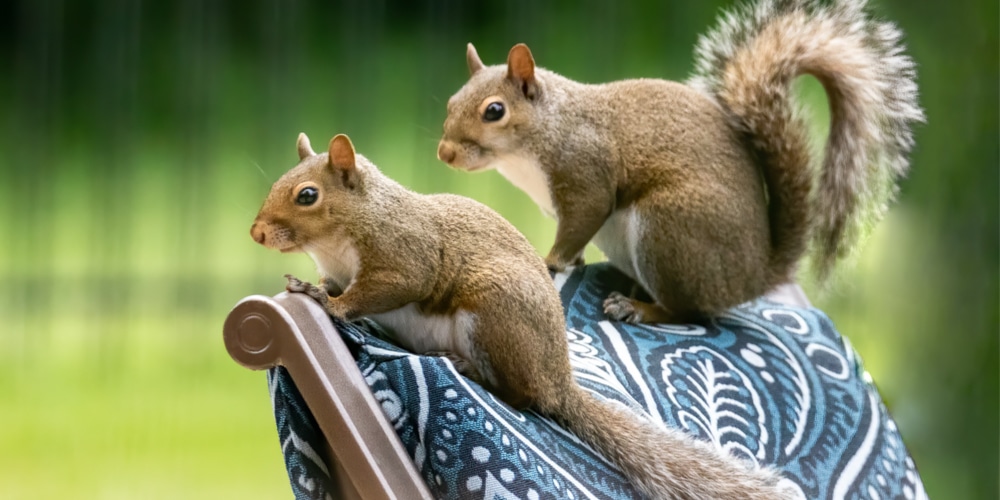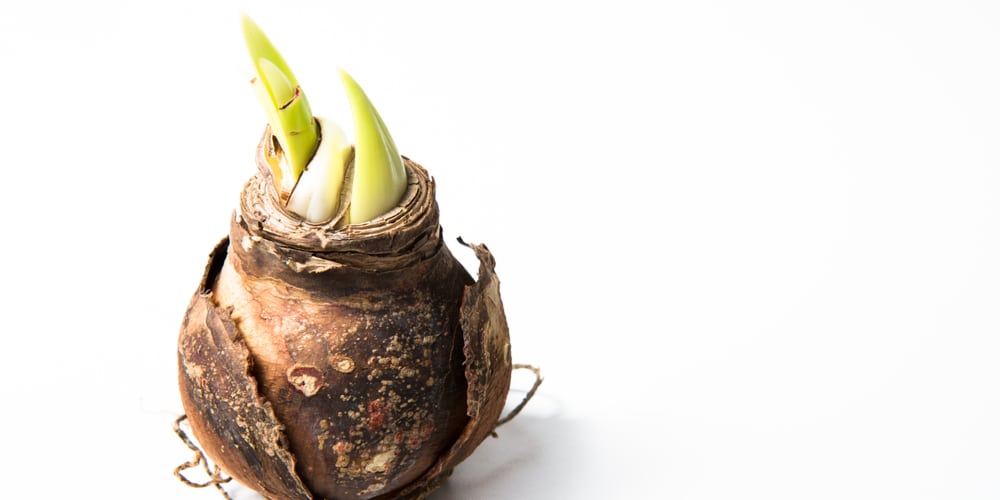Wild squirrels love to feast on bulbs such as tulips and crocus when they can, which causes endless headaches for gardeners who want these plants in their yard or landscape. There are, however, several things you can do to stop these pesky critters from wreaking havoc in your garden. Consider these 5 ways on how to keep squirrels from digging up bulbs.
How to Keep Squirrels from Digging Up Bulbs

Cover Your Bulbs
Installing a cover for your bulbs is arguably the best way to deter squirrels, chipmunks, and other digging creatures from getting to your plant. However, not just any cover will do- it’s recommended that you use hardware cloth, garden netting, or chicken wire as an anti-squirrel solution.
You can either cover the whole planting site with chicken wire or net or create cages that you can put on top of the plant. The first method involves staking the net or wire with large stones, bricks, or landscape staples a few inches above the soil line.
When spring comes around you can remove the net or allow your bulbs to grow through the material. In addition, you can add a layer of mulch (around two to three inches thick) made from shredded bark or leaves to hide it.
Alternatively, you can fashion a simple cage where you put the bulbs in. This makes it more difficult for squirrels and even tunneling creatures such as voles or rabbits to get to your plants.
Clear Plant Debris Regularly
Squirrels, raccoons, and other small creatures are generally attracted to areas where there’s plenty of debris because they will have access to several hiding places. If they feel vulnerable and out in the open, then chances are they’ll skip your garden and look for other possible feeding spots.
It’s always a good practice to clean up both man-made and natural plant debris when you’re done.
Bulb ‘skin’, or the papery-like substance from plant leftovers tends to attract squirrels and unwanted pests into your yard, so you’ll definitely want to dispose of them properly.
Also, you’ll want to clear up dead leaves and branches, as well as pet food (if you have any) regularly so the squirrels won’t have reason to stick around.
Plant Deeper or Later
Food storage and eating for chipmunks and squirrels peak in early fall and through the season, just before the cold arrives. Things seem to quiet down once the wild rodents have enough food to get them through the winter.
You can try and avoid the feeding craze by planting your bulbs in late fall so you won’t be targeted by hungry squirrels.
It’s worth noting that squirrels tend to dig up the soil just a few inches to try and see if there’s a tasty snack underneath. That said, you can try planting bulbs such as tulips a bit deeper (around 6 to 8 inches) so it’s less likely to be discovered.
Plant Bulbs They Don’t Like
Sometimes it’s as easy as planting bulbs that squirrels are averse to. There are other bulbs that flower in spring and produce equally fascinating blooms as crocus and tulip varieties.
A few recommended flowering bulbs include alliums, hyacinth, snowdrops, scilla, and daffodils. Remember, each has its own set of growing requirements, e.g., water, soil, and light needs you should meet to be successful.
If you’re dead set on planting bulbs that squirrels love, then you can hide them in among your other plants. This strategy is particularly more effective when used in conjunction with groundcovers such as pachysandra, creeping vinca, and similar species.
Use Organic and Natural Repellents
Last but not least, you can try to keep squirrels from digging up bulbs by using natural and organic repellents. Chili, particularly crushed red pepper and pepper flakes, are said to be effective versus rodents.
You can also make your own garlic or vinegar solution which you can spray liberally on the topsoil to deter the critters from approaching and causing destruction.
Other repellents you can use include a few strands of human or dog hair buried around the bulb, or a sprinkling of sharp gravel that’s about two inches thick. It’s recommended that you re-apply the squirrel repellent every week and after a hard rain hits your yard or garden.
Related Article: Does A Squirrel Eat Bulbs?
